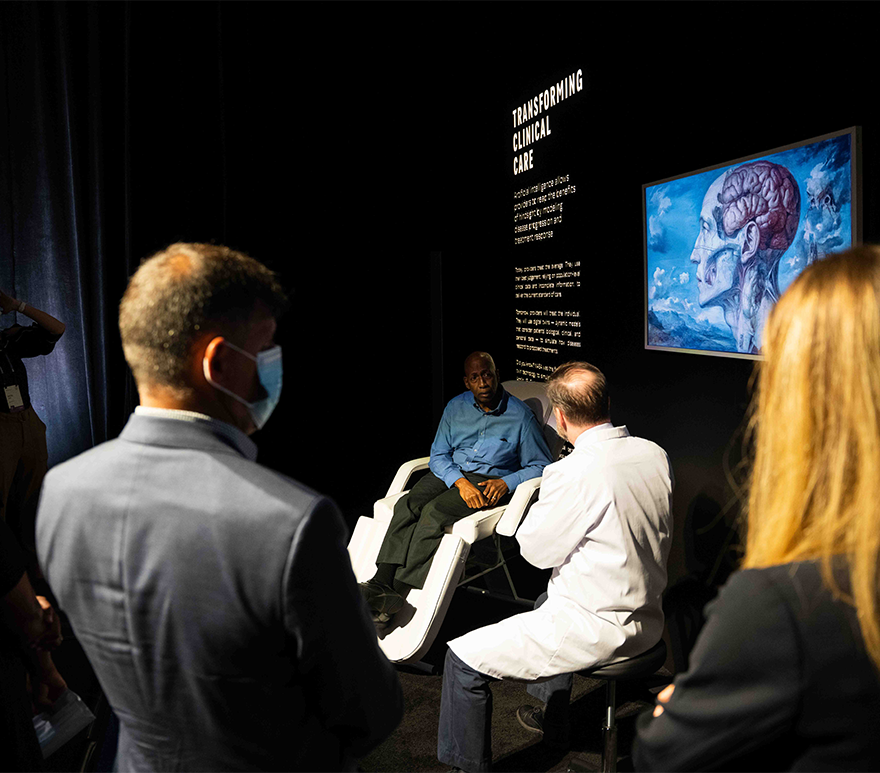It’s a question many people in healthcare are asking these days: How can artificial intelligence help the individuals we serve?
Visitors to the Inspiration Experience at this year’s Oliver Wyman Health Innovation Summit gained insight into some of the answers. The Inspiration Experience, a hands-on exhibit, guided visitors through three use cases for AI and how it can enhance patient care and the overall patient experience.
One example showcased how AI can, in real time, ingest patient information and analyze it alongside evidence-based data to simulate different treatment and outcome scenarios. This use of so-called digital twins can improve the likelihood that patients receive the right care at the right time. At another station in the Inspiration Experience, visitors learned how AI can assist caregivers in providing patients with targeted and personalized information. Operating in the background during a routine check-up call between a care manager and a patient, AI can analyze the conversation and identify nuances that a human may miss. It can then generate detailed options to guide the patient through their treatment plan or encourage healthier habits. The final station demonstrated how AI can accelerate drug development. By leveraging evidence-based data, AI can pinpoint where, when, and how a drug may work, potentially hastening the availability of lifesaving therapies in the market, although modifications to regulatory structures and clinical trial processes are necessary.
Do you want a closer look at the Inspiration Experience? Check out this LinkedIn video with Oliver Wyman's John Lester where he guides us through the three stations.
While some applications of AI are still a few years away, the reality is that the industry is at a point of accelerating adoption, Amy Waldron, Global Leader of Healthcare & Life Sciences Solutions at Google Cloud, said during a Q&A session with Oliver Wyman’s Terry Stone. Waldron expressed excitement about solutions that free clinicians from routine documentation tasks, allowing them to spend more time with patients, as well as AI tools that enhance the patient experience by providing comprehensive answers to questions when visiting a portal.
There’s no perfect plan for deploying AI, Waldron noted. The biggest mistake leaders can make right now is to do nothing. She suggested that organizations seek out easy wins and build from there.
AI will be featured prominently throughout the Health Innovation Summit, and we will have continued coverage on that and other topics transforming healthcare.


